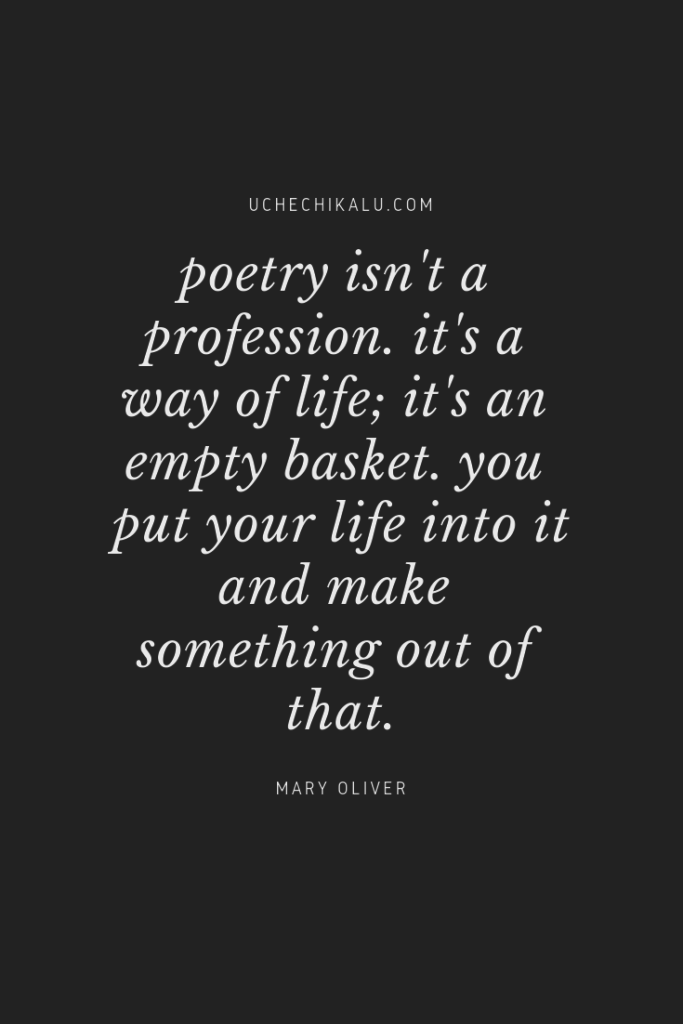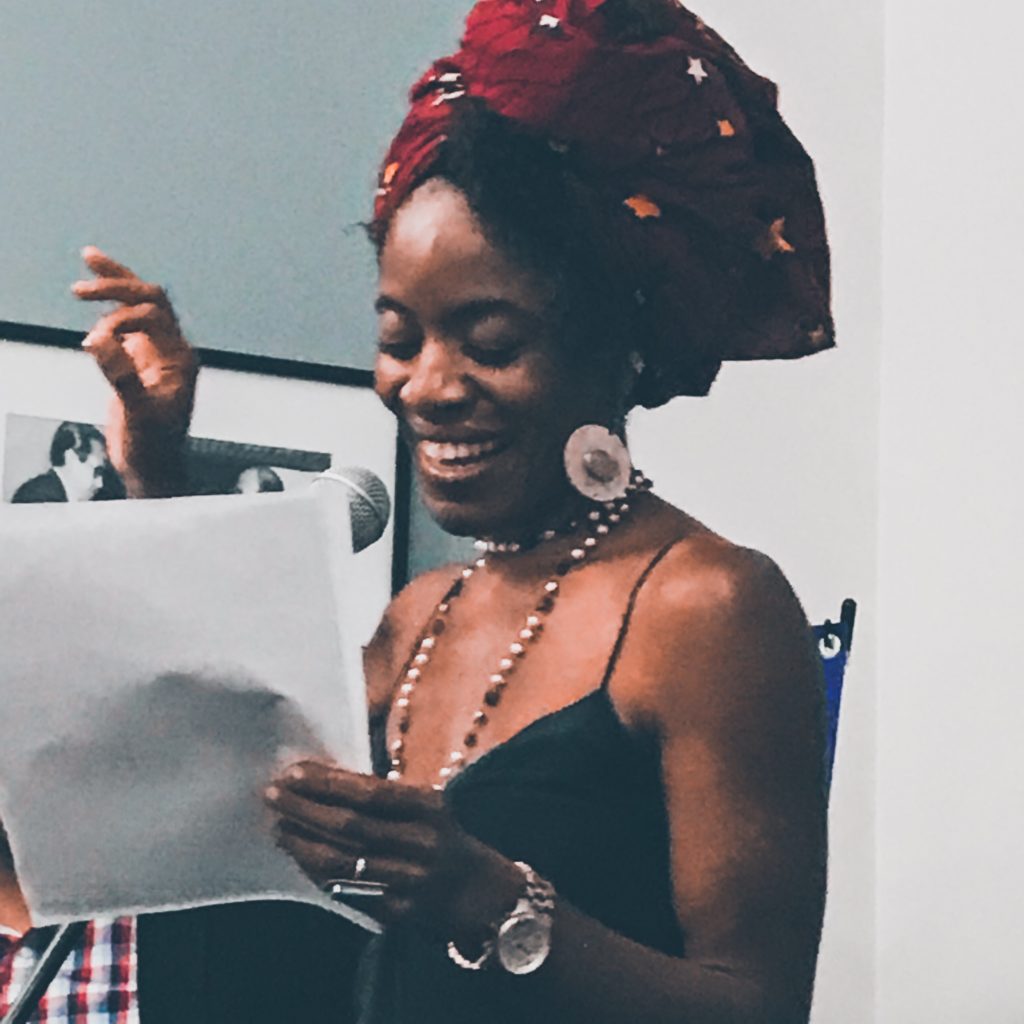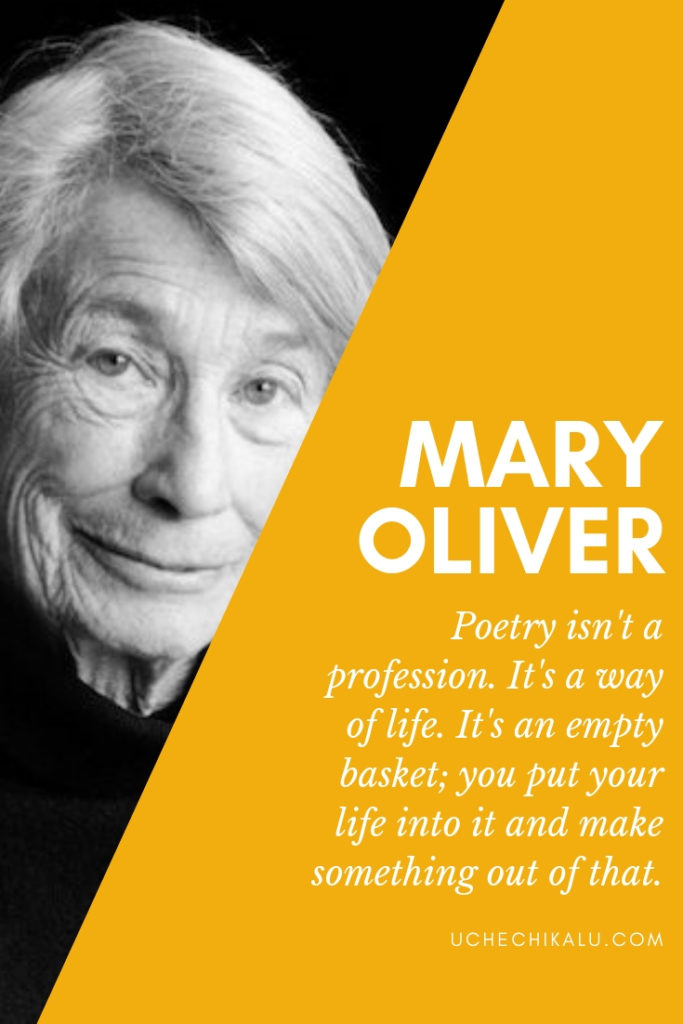
by Uchechi | Jan 24, 2019 | Blog
 Dear Creative,
Dear Creative,
You are not lost. You are just getting resourced.
There’s a narrative that says if you intend to focus on one thing but end up doing something else, then you are lost. That narrative about creativity needs to die. It no longer serves you.
Let me tell you a story.
I’ve often felt lost. I studied creative writing and education, but I was not always getting paid to write. Sometimes I got paid to teach, and other times I received a check with many zeros for reading at literary festivals. I’ve also paid my bills by working as a personal chef, copywriter, public speaker, tech startup founder, and UX web designer.
I did not understand the connection and power of the things I was learning along the way.
I taught writing and thought that it was because I was not meant to be a writer. I worked as a web designer and business owner of a software company.
I did all these things and was unsure about the next step. I felt conflicted. Maybe you feel conflicted between the work you love and the work you get paid to do?
May I suggest something that helped me?
1. Start seeing the pause or shifts in your creative career as pivots with a purpose.
2. Start telling yourself that you are not lost, but just getting resourced.
3. Remember that one day it will all make sense and come together in a way that allows you to leverage your very own intersection of creative value that you can offer. And there will be those who need exactly what you are offering.
I know things feel challenging. I know you feel lost. I know you are wondering how you started on this path and ended up over here. I know none of it makes sense.
One day it will make sense.
Try to ask yourself what each pivot is teaching you. Try to bring something from one career path into the other.
I love these wise words from the beloved late poet Mary Oliver, who passed on last week and became one of my creative ancestors.

In these words, I found an explanation that stitched together the very idea I’m trying to convey here. Your greater vision is not a profession. It is a lens through which you see the world and put everything inside it.
Maybe Impact Matters More Than Career Path?
Maybe we are not searching for careers? Maybe, in the end, we are searching for a world view through which we can look out on this world and decide how to have the greatest impact.
Today I proudly refer to myself as a multidisciplinary artist-entrepreneur. The title matters less than the impact.: to help fellow creatives find, share and use their voice to support their purpose.
I do this by writing this blog, digital strategy for web and marketing clients and building web and mobile applications. I also use those same skills I learned along the way to build my own website and market myself as a poet and web designer.
I did not realize that the work I was doing, like technology, could not yet be understood by me. It was still forming the way social networks were still forming years ago.
One Day, This Will All Make Sense For Your Creative Journey
The needs of our culture changed and made too for keeping multicultural connections through our devices, so we graduated into a greater digital literacy that made room for social media.
The same is true for your work. The works we live in now is more nuanced and demands a more multidisciplinary approach to complex challenges. This is why we have graduated to a place where we not only understand your approach, but we so desperately need it.
One day, this will make sense and you will take your place in the world of work that only you can do.
Trust yourself. Keep going. I want to see your brilliance.
Love,
Your Future Self

by Uchechi | Jan 17, 2019 | creativity
I was recently contacted by a teacher (and student) from Mexico City. The high school students are studying poetry, and the teacher wants to find more ways to engage the students. They asked me to answer these questions. My goal is to help them understand poetry and to feel more connected to it. If you are an educator, please use this as a guide to help you in your classroom. These questions were asked by the teacher.
How can students understand and feel poems?
- Read each poem aloud.
With each poem, ask the students to read it aloud. Then ask them to find one line they feel connected to. The line will serve as a thread they can pull from, a door and enter. Ask them to write down 1 line that connects them to something in their own experience.
- Use Diverse Examples Of Poetry
Some may not agree with this, but when I was a teacher I learned that connecting with students on their level was helpful. Don’t be afraid to use music as a reference. If your students prefer musicians to written poets, let them reference that and discuss how it relates to poetry.
The Personal Will Become Universal for New Poetry Students
I believe the personal is universal. Poetry is a collection of personal stories strung together by metaphor and a hunger to be seen while observing the world. In understanding some of the most personal stories of another human being, we begin to understand that nothing in our story is unusual. We live in different parts of the world at different times and have different eyes and different skin, but we all hunger for the same thing: to make meaning of our lives and the world around us. we want to know that our lives signify something.
This is how the students will understand a poem. They will find that one line that becomes a window or a door into their own world and they will remember that they also want to have significant life and have mattered to someone.
How can students feel inspired to participate in poetry class?
Write A Collective Poem
I suggest aking the students to write a collective poem, where each person contributes one line. I usually start with one line and pass the paper around until each student contributes something. Hopefully, this exercise will create community. Sometimes students feel shy to write a poem on their own, so this is a great way to involve everyone.
I think teachers should also participate and add a line.
How To Write A Collective Poem
- Start with one large piece of paper.
- Ask each student to contribute one line. They should not think too much about this. The line does not have to be perfect. They can write down anything that comes to their mind. This exercise should be fun.
- The teacher should also add a line to the poem.
- Pass the paper around the circle 1 or 2 times. It depends on how many students you have. If you have 30, then one time will work well. If you have 5, then I suggest passing the paper around 2 or 3 times.
Has poetry helped you in your work as a web designer and entrepreneur?
Approaching Web Design As A Digital Storyteller
Creating websites is a form of storytelling. Before I build or design anything, I try to find the story.What is the story each business is trying to tell? This work is (in part) digital storytelling. I use modern tools like coding, web design and digital marketing but it is the story that connects it all.
Good Web Design Is Good Storytelling
An impactful website tells a good story. That story then takes website visitors on a journey. At the end of that journey, your website visitors can choose to leave or arrive at a destination where they are asked to take action.
Businesses ask customers to buy from them, sign up for their newsletter, contact them or read their content.
The late poet Mary Oliver said this about poetry and professional life:
“Poetry isn’t a profession, it’s a way of life. It’s an empty basket; you put your life into it and make something out of that.”

So yes, poetry does help me in my work as a web designer and entrepreneur. It gives me a perspective, a container through which I can put my work into. And that container helps me when I design from the perspective of a storyteller and a lover of language.
It also helps me when I speak at conferences and poetry festivals. My work as a poet prepared me for the public part of my tech work. Some days I design websites. Some days I also travel and speak at business conferences. When I walk onto the stage, I feel more confident because I have experience doing this as a poet.
I believe that we all so desperately need a perspective that informs how we connect with the world on a personal and professional level.
Poetry is my container and my worldview that informs (and enriches) the work I do.



